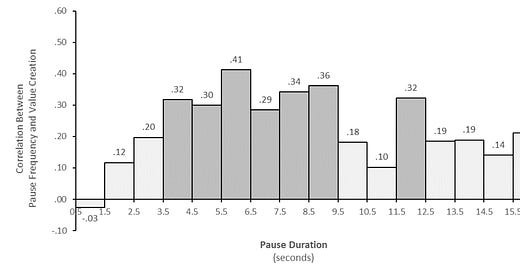Don’t just do something, sit there
One of my favourite slogans in life is “don’t just do something, sit there”. Too often we act based on the more famous slogan of “don’t just sit there, do something” especially when the stakes are high. Action is generally rewarded more than inaction. But if you manage a portfolio, you will learn that doing nothing is not just often better than doing something, but doing nothing should be your default option. Doing nothing as default option creates a hurdle to overcome with your investment decisions and forces you to think about why selling one asset and buying another should add value.
The same, it seems, is true for negotiations of all sorts. A recent study looked at the use of extended silence in all sorts of negotiations. Silence in negotiations is often thought of as an intimidation tactic where one party shuts up in order to provoke a feeling of insecurity or a “first move” by the other party. This, it is hoped provides an advantage for the party who remained silent.
But it turns out that in real life negotiations silence doesn’t necessarily foster intimidation, but more creative solutions that are beneficial for both parties.
This study showed that when one party in the negotiations remained silent for longer than three seconds, it wasn’t typically interpreted by the other side as intimidating, but as a form of deliberation. And the silence indeed seems to stimulate thinking. Both parties of a negotiation seemed to use the extended silence as an opportunity to reflect on the problem at hand, change their perspective and come up with creative out-of-the-box ideas that solved a potential impasse in the negotiations.
Length of silence in negotiations and correlation with value-add solutions
Source: Curhan et al. (2020). Grey bars indicate correlations that are significantly different from zero.
Interestingly, if the negotiations were moderated by a third party, a good way by the third party to improve the outcome of the negotiations was not to instruct the parties to think deliberately of a creative solution (“Be creative, now!”). Instead, the better technique for the moderator was to instruct the negotiating parties to take a step back and reflect in silence. This was more effective in creating mutually beneficial value add solutions.
However, it seems that this technique of taking a step back doesn’t always work. In an experiment with high status and low status people (e.g. an employee negotiating a higher salary with her boss), silence worked only for the person with the high status. When the low status person took a deliberative pause, it had no effect on the high-status person whatsoever. If anything, it was interpreted negatively, probably as an act of manipulation or intimidation.




